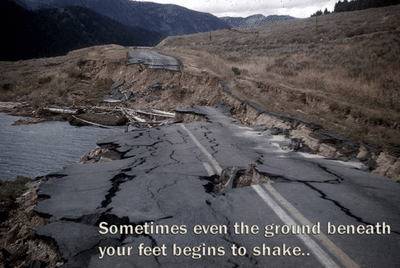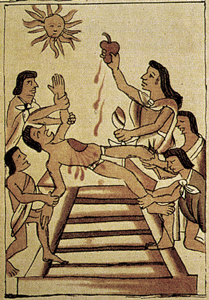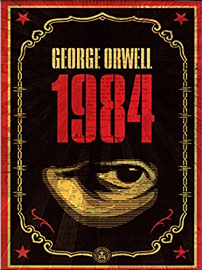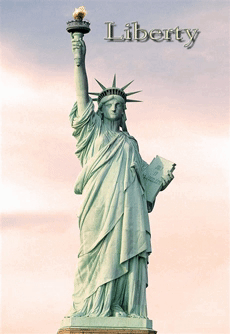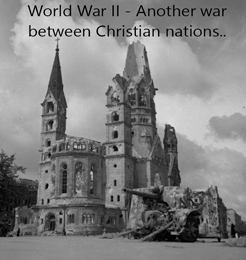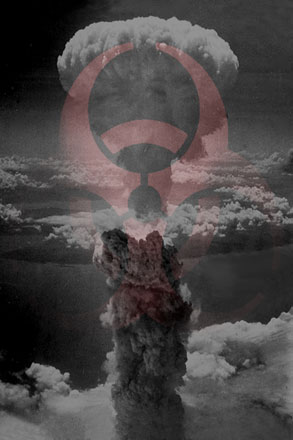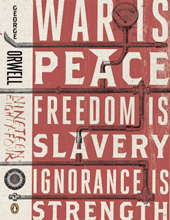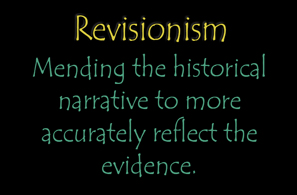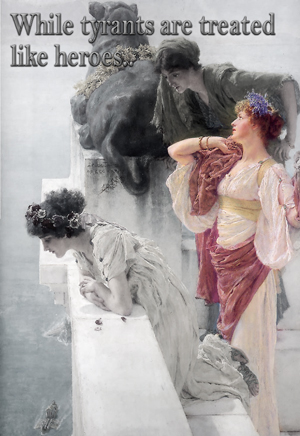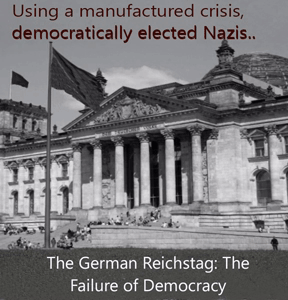Beginner's Guide to Peace - Dead Ends
“Worry compounds the futility of being trapped on a dead-end street. Thinking opens new avenues.” - Cullen Hightower
Seismic Shifts and Cultural Transformations
NOTE: This chapter can be especially challenging and sombre. To fully capture the mood, I recommend Chant by the Benedictine Monks of Santo Domingo de Silos as an appropriate soundtrack for this section.
While traveling the path that our culture has laid out can provide for rapid progress, there are occasions when we may need to change direction. There are times when the landscape itself changes, shaking us off balance and making old roads impassable.
Sometimes the pressure to change comes from outside, through the import of foreign goods or ideas. Other times the force for change comes from within through technical innovations. Sometimes the environment itself changes, in the worst cases requiring the physical migration of some or all members of society in order to survive.
Our cultural heritage may offer suggestions for alternate paths forward but sometimes the culture itself needs to transform. One example of a recent shift in the landscape is the superabundance of food in many countries. This plentitude, combined with an increasing number of sedentary jobs, a hyper-connected world of 24 hour television and entertainment options, and an ever increasing fear of allowing children to explore the world on their own, has contributed to the growing problem of adult and even childhood obesity. Since many cultures evolved during times of scarcity, they developed traditions and customs focused on feasting and celebratory eating for the rare occasions when food was plentiful. The relatively new superabundance and the resulting problem of obesity is something that many cultures have yet to adapt to.
Cultural Dead Ends-War, Slavery and Human Sacrifice
"Is there really as much difference as we think between the Aztec human sacrifices to their gods and the modern human sacrifices in war to the idols of nationalism and the sovereign state?" - Erich Fromm
Sometimes, and perhaps inevitably, cultures reach a dead end. The old ways of doing things, perhaps somewhat functional in more primitive times, are no longer the best way forward. This can be the result of advances in technology, communication, travel, or moral development. War, slavery and human sacrifice are all examples of cultural dead ends. Each of these practices has existed for millennia at various places around the globe and all are ultimately destructive to the cultures where they are practiced. They can also be extremely dangerous and even deadly to the societies that surround them.

Arising out of conditions that have long since disappeared, ancient cultural relics such as war and slavery can ultimately be fatal to modern societies. Like malfunctioning genes in an organism that causes the body to destroy itself, as in autoimmune diseases, or causes cells to grow out of control, like a cancerous tumor, certain cultural elements need to be revised or eliminated before society destroys itself.
War is a particularly persistent and dangerous historical artifact. While most cultures have managed to throw off their attachment to slavery and human sacrifice, many still cling tenaciously to the practice of war.
One reason for the persistence of war is that “war is the health of the State”[1]. The outbreak of war is not just a natural outcome of the State’s embrace of aggression and deadly force. The fear and destruction that war creates actually serves to feed and grow the State in a horribly vicious cycle.
For most cultures the State is a parasite at the very center of society. Its potential to damage and destroy cannot be overstated. Within most societies, the State is so deeply embedded that it seems impervious to removal or even reduction. Like the face sucking monster in the movie Alien, any attempts to remove it seems to threaten the lives of all.
Deceit and Misdirection
“Who controls the past controls the future: who controls the present controls the past.” - George Orwell, 1984
While States seem to grow most vigorously during times of war, at least those that do not miscalculate and unintentionally weaken or destroy themselves during the conflicts[2], wars do not necessarily last forever[3]. Because of this States have developed a number of tactics to survive those all too brief periods of peace that punctuate the wars. One of these, the practice of appropriating beneficial cultural practices and monopolizing them, is described in the Cultural Hijacking section in the Treacherous Roads chapter. A second tactic, the practice of intentional deceit and alteration of the historical narrative, is the focus of this section.
In order to survive States hide, distort and manipulate the records of the past for their own purposes. This is to the detriment of individuals and the society overall. The alteration of history distorts cultural maps, causing travelers difficulty in making sound decisions and leading them astray from their desired destinations.
Although it is now seemingly easier to discover these facts, government mistruths and distortions have so permeated the cultural milieu that any challenge to the State narrative causes an uncomfortable cognitive dissonance among many. The end result is large scale resistance to the truth as many react with fear and anger whenever facts are presented and lies are exposed.
From the American Revolution to the open wars against Afghanistan, Iraq, Libya and Syria and the covert wars in numerous other nations, the parasitic State that is embedded in the heart of American culture has used war to transform itself into a military power never before seen. Spending as much on the military as nearly all of the other countries in the world combined, the U.S. now encircles the globe with over 800 bases, maintaining forces in countries such as Japan and Germany more than seventy years since World War II concluded.
The narrative painted by the State is that war has been an integral and vital force in the establishment of “peace and liberty”. This seems to contradict the obvious fact that war by definition destroys the peace, at least in the short term. The "short term", however, can often last decades as was the case of the 20 year U.S. occupation of Afghanistan, ending in 2021.
Just as war destroys the peace, it harms the progress of liberty as well. During times of war the State severely restricts liberty, using fear and propaganda to insinuate that freedom must be sacrificed to ensure victory and a future peace. Once the wars are over, though, liberty never quite returns to the previous norm. Robert Higgs describes this as the ratchet effect whereby the State steadily tightens its grip and power through its succession of wars.
An Alternate Perspective
The fact of the matter is that there has been no war in the history of the United States, since its very inception, that has led to an overall level of liberty that could not have been better achieved through alternative actions. The dozens of wars and hundreds of military incursions and covert acts of aggression that the U.S. has participated in have largely served to impoverish its citizens, decrease their personal and economic freedom, and create unanticipated blowback which the State then uses to justify additional wars and military aggression.
Consider the American Revolution: Before the totalitarian Covid lockdown insanity of 2020-22, the citizens of Australia, New Zealand and Canada all experienced relatively high levels of both prosperity and personal freedom[4]. In 2016, in fact, all three of those countries led the U.S. on measures of both economic[5] and political freedom[6]. Given this observation, it could be reasonably argued that war with the United Kingdom was not necessary for citizens of those countries to obtain a relatively high level of freedom, at least for a time. This of course calls into question the necessity and long term results of the American Revolution[7].
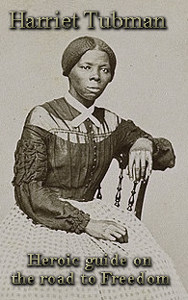
Consider also the institution of slavery: Did the slaves in the newly created United States find themselves free after the American colonies succeeded in breaking from the U.K. in 1783? Apparently the phrase “All men are created equal” did not apply to them. In contrast, by 1793[8] the province of Upper Canada, later to be known as Ontario, had already passed one of the first anti-slavery laws on the continent. Furthermore, in 1833 the United Kingdom abolished slavery throughout its empire, with the exception of a few areas which were also included by 1843[9]. This occurred a full 30 years before the Emancipation Proclamation in the U.S. In fact, during the 1840’s through the 1860’s, it was to Canada that slaves in the U.S. were fleeing. Interestingly, a century later Canada again served as a place of refuge for those wishing to be free, this time for U.S. draft resisters who refused to participate in the U.S. war against Vietnam in the 1960’s.
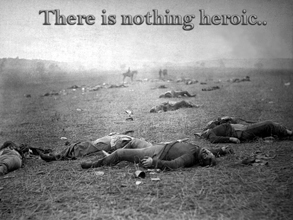
Furthermore, the so called ”Civil War” in the U.S. was not launched to free the slaves any more than the Boston Tea Party was a protest against the British tax on tea. In 1861, in his first inaugural address, the newly elected President Lincoln threw his full support behind the Corwin amendment to change the U.S. Constitution and permanently protect slavery in the United States[10]. This was a deliberate and perhaps desperate act to try to bring back the seven U.S. states that had declared their independence after Lincoln’s election.
If Lincoln was making it clear that he was against the abolition of slavery, why did the southern states persist in their separation, and why was Lincoln so insistent in opposing succession, a concept that he had embraced during the U.S. war against Mexico in 1846[11]? The answer, on both sides, has to do with economics.
Throughout the early 1800’s, the U.S. government received more than 80% of its revenues from import tariffs, about three quarters which was paid by citizens of the southern states even though, and perhaps because, their voting population was smaller than that of the north. Additionally, the distribution of that money went disproportionally to infrastructure projects in the northern states in a corrupt arrangement between business interests and the central government. Lincoln and his Republican party, in the pockets of Northern industrial interests, were strong supporters of these inequitable taxes. In fact, just two days before Lincoln’s inauguration the Morell Tariff went into law, establishing the highest tariff rates in U.S. history. By 1862, a year into Lincoln’s term, those tariffs had risen to an average of 47% on all imported goods[12].

It should be obvious, then, from Lincoln’s own inaugural address supporting slavery’s preservation that the Civil War began not as a noble attempt to extend human freedom. The Civil War, instead, was a brazenly cynical and ultimately brutal action to restrict the independence of citizens in the southern states and to chain them to extraordinary high and inequitable taxes. The call to “preserve the Union” was in reality a callous maneuver to protect the centralized economic and political power of the federal government.
The historically accurate story of this time is that, while European and South and Central American countries were taking action to eliminate slavery throughout the first half of the 19th century, it was not until 1865 the slavery was finally abolished in the U.S. The original Emancipation Proclamation of 1863, freeing only those slaves in the rebelling states under which the U.S. federal government had no control, had been a mere cynical ploy to cause internal disruption and slave rebellions in the rebel states and to fend off European involvement in the Civil War on the side of the southern states.
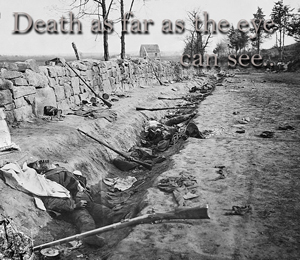
The story of the U.S. Civil War is a garish example of how events in history get distorted and even flipped to suggest the exact opposite of what actually happened. There have been literally thousands of books written about the Civil War, dissecting nearly every battle and presidential speech made during the four years of the United States' most deadly war, and yet few people understand the real economic and political factors involved. Instead, the severely flawed personage of Abraham Lincoln, a man who was against the spread of slavery into the western states because he was opposed to the intermingling of Europeans and Africans, who hoped and pushed for the exodus of Africans out of the U.S. after the war, and who violated the Constitution multiples times during the course of the war by arresting reporters and suspending habeas corpus, has instead become a demi-god falsely representing freedom and justice in the Pantheon of U.S. Presidents.
With regards to the earlier reference to the Boston Tea Party, this event is another example of how the historical narrative gets flipped. This supposed blow against taxes actually happened after the British had lowered the tax on tea, making it competitively priced with the Dutch tea that John Hancock and his cronies were smuggling into the American colonies[13]. The “Tea Party” was in fact an act of vandalism and economic warfare, one for which Benjamin Franklin thought that the British should be compensated.
The “Good” War
The Second World War is sometimes referred to as “the good war”[14], at least in the United States, and is often used as a weapon to bludgeon into silence anyone questioning the utility of war in general. The fact of the matter is that two significant actions by the U.S. government, one in the 1850’s, the other in 1916, helped set the stage for the deplorable carnage that was World War II.
In 1852 Commodore Perry was sent by the U.S. to open trade with Japan. He was authorized to use “gunboat diplomacy”, meaning that he could use force or the threat of force to compel “cooperation”. This is of course the antithesis of the Non-Aggression Principle, especially considering that the Japanese were of not threat whatsoever to the people or government of the United States.
The Japanese at that time were continuing their multi-century policy of cultural isolation. In essence the Japanese wished to be left alone. Undeterred by this long cultural tradition, Perry intimidated the Japanese into signing a treaty in 1854 that marked the return of Japan to the world stage. The upshot is that the Japanese, learning an obvious lesson and not wishing to be bullied again, began a rapid buildup of their navy. Within a few short decades the military might of the Japanese was unleashed on the world as they began their own series of militarized intrusions, invading and occupying countries and territories from eastern Russia and Korea to China, Taiwan and Indochina.

The second act of U.S. intervention that helped set the stage for World War II was the U.S. entry into the “Great War” in 1917. While President Woodrow Wilson’s campaign used the slogan “He kept us out of war” for the November 1916 election, within five months after being reelected Wilson was before Congress asking for a declaration of war against Germany. The short term result of U.S. entry into the war was to tip the largely stagnated three year conflict to the side of the French and British to the detriment of the Germans. The resulting Treaty of Versailles unfairly required Germany to accept full responsibility for the war, concede to indefensible land concessions that created ethnic divisions, and to pay extremely harsh monetary reparations. This inequitable treaty was eventually used as a rallying point for Adolph Hitler and millions of disgruntled Germans in the 1920’s and 1930’s, leading ultimately to World War II.
These two interventions of the U.S, in Japan in the 1850’s and in Europe in 1917, ultimately helped set the stage for the entrance of two of the main players of World War II. Had the U.S. not intervened in Japan, Japan may have gone on to continue its isolationist policy for decades more. Had the U.S. not intervened in World War I, the balance of power would not have shifted so as to punish the Germans and set the stage for Hitler.
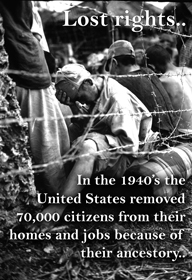
With regards to World War II, other actions by the United States are often unstated or distorted in U.S. classrooms as well. The Japanese attack on Pearl Harbor, for example, could hardly have been unexpected as it was a natural retaliation against the United States’ militarily enforced economic blockade of Japanese trade. Such a blockade can hardly be defended as the act of a supposedly neutral country. Additionally, this “back door” entry of the U.S. into the European war, due to the Germany\Japanese defense agreement, meant that the United States became allied against Hitler with the equally despicable Joseph Stalin, a person who had millions of his own people killed during the 1920’s and 1930’s. Had the U.S. stayed out of the war, as Switzerland and Sweden managed to do, the mortal enemies of Nazi Germany and the Communist Soviet Union would likely have continued to exhaust resources against each other. Instead, the U.S. intervention allowed for the survival of the Soviet Union which then went on to enslave Eastern Europe for 45 years.
Atomic Weapons: The Ultimate Dead End
The conclusion of World War II, we have long been told, only came about after the dropping of atomic bombs on the Japanese cities of Hiroshima and Nagasaki. From the announcement of the first bombing, the United States propaganda machine ran full tilt to justify the mass murder of 80,000+ civilians in Hiroshima, including a number of allied POWs along with 20,000 innocent Koreans who had been conscripted to work by the Japanese government[15].
Inpatient in their demand for a full unconditional surrender, the U.S. gratuitously dropped a second bomb on Nagasaki just three days later, killing another 60,000 or more civilians. Ironically, the all-Christian crew of the second bomber managed to do what various Japanese governments had been unable to do for centuries: by dropping the bomb on Nagasaki, they annihilated the largest Christian community in Japan, a community of thousands that had been forced to go underground in the 1600’s and survived in secret for over two centuries before the ban on Christianity was lifted in 1873[16].
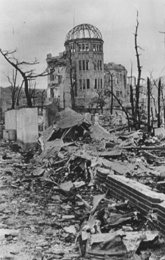
The story woven by the State was that the bombings were a “necessary evil” and saved the lives of a half million soldiers. The fact of the matter is that Japan was on the brink of surrender. It was the U.S. demands for unconditional surrender and the dethronement of the Japanese emperor that unnecessarily prolonged the war. Strangely, the later condition was dropped by the U.S. shortly after the bombs were dropped. Additionally, no less a military leader than General Eisenhower, the Supreme Allied Commander in Europe, had expressed reservations on the need to use the bombs and had urged Truman not to use them in the weeks before their eventual deployment[17]. The hurried dropping of the second bomb on Nagasaki, just days before the scheduled entry of the Soviet Union in the war against Japan, is even more questionable and reprehensible.
How does history get so distorted?
The occasion of any death is a time for reflection. Faced with its harsh finality, we try desperately to make sense of it. When the deceased are young, as in times of war, there is an especially deep and desperate desire to find some positive element in the loss.
It is at these particularly vulnerable times that it becomes easy for the State to morph the narrative to its own advantage, transforming brutally destructive and senseless wars into just and noble causes.
Thus the Civil War is transformed from a war ignited by a gross imbalance of economic and political power to a war to end slavery and spread the gifts of liberty. A war between European empires for global dominance in the early twentieth century becomes a war to “make the world safe for democracy”. War becomes peace, destruction becomes renewal and the dead speak not a word.
In the United States, any significant challenge to the State narrative is met with swift and aggressive suppression. One example of this occurred in 1995 when, on the 50th anniversary of the atomic bombings of Hiroshima and Nagasaki, the Smithsonian Institute attempted to create a historically accurate and contextually rich telling of the events, in part from the perspective of the Japanese. In reaction, the Newt Gingrich Republican dominated Congress threatened to withhold funding from the Smithsonian, effectively pressuring the Institute into removing any element that challenged the national myth .
Over the two and a half centuries of its existence, the United States government has been involved in dozens of wars and military campaigns and well over a hundred military interventions, many of them covert so has to avoid any legal or ethical challenges from its citizens. Inevitably these interventions lead to blowback, a term coined by the Central Intelligence Agency (CIA) to refer to “the unintended consequences of policies that were kept secret from the American people”. Because the actual causes of blowback are hidden, the public is unable to determine appropriate reactions when these events occur. In the heat of such events as the 9/11 attacks in NYC and Washington DC, the State is thus able to channel the public’s passions to its own ends, justifying the invasion of countries such as Afghanistan and Iraq that in fact had nothing to do with the suicide attacks.
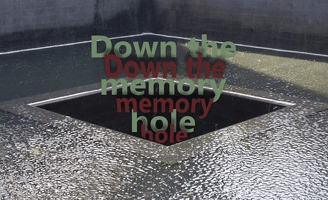
The State does everything possible to hide facts contrary to the official narrative and the agendas it wishes to pursue. For nearly 12 years the U.S. government suppressed the release of 28 pages of the 9/11 report that hinted at Saudi Arabian involvement in the funding of the September 11 attacks of 2001[18]. Even now some parts of those pages remain redacted.
For over 50 years, the CIA and other government entities have fought to suppress the release of thousands of pages of documents related to the JFK assassination, supposedly conducted by a "lone gunman". Over the centuries, the U.S. government has ruthlessly tried to suppress evidence or justify atrocities such as the massacres at Wounded Knee in South Dakota and Mai Lai in Vietnam, the torture and abuse of prisoners of war in such places as Abu Graib prison in Iraq, and the deaths of untold tens of thousands of civilians from inaccurate bombings, unexploded ordinance or radioactive fallout, cynically referred to collectively as “collateral damage”.
Revisionism: Restoring the Cultural Map
“You shall know the truth, and the truth will set you free.”- Jesus of Nazareth
Those that challenge the State narrative are often derisively referred to as “revisionists”. The reality is that the revisionists are merely attempting to remove a distorting lens to history, pulling back an overly simplistic, mythological and at times even child-like interpretation of events to reveal a richer, deeper and more accurate historical record.
Sometimes the facts of history are quite obvious and clearly contrary to the official mythology but merely calling attention to them can subject one to personal attack. The vitriol hurled against writer Thomas DiLorenzo for his books criticizing Lincoln, for example, is absolutely appalling. It is clear from the historical record that Lincoln is not the god of freedom and justice that the State attempts to depict but was instead a tyrant who violated the Constitution at will. Just a few of Lincoln’s many crimes were his suspension of habeas corpus, the drafting (enslaving) of soldiers to fight his war, the imprisonment of thousands of Northern citizens, including newspaper reporters, that were opposed to the war, the confiscation of private property, the deportation of a Ohio Congressman who was critical of Lincoln, and the censoring of all telegraph communication[19]. These and many other overt violations of the Constitution, in order to “save the Union”, have the same ironic ring as the quote from the U.S. Major who claimed during the Vietnam War that “it became necessary to destroy the town to save it”[20].
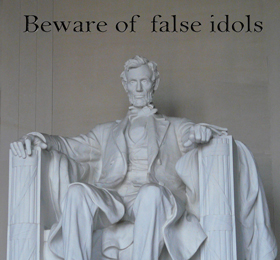
One final note regarding Lincoln: To get the true sense of the man, one need only quote him at length. The following is a quote of his from the famous Lincoln-Douglas debates of 1858 where he denied being an abolitionist. Please remember that these are Lincoln’s words and in no way represent my personal views!
“I am not, nor ever have been, in favor of making voters or jurors of Negroes nor of qualifying them to hold office nor to intermarry with white people; and I will say in addition to this that there is a physical difference between the white and black races, which I believe will forever forbid the two races living together on terms of social and political equality. And in as much as they cannot so live, while they do remain together there must be the position of superior and inferior, and I as much as any other man am in favor of having the superior position assigned to the white race.”
A Hero’s Journey
Challenging the State narrative using readily available public materials can be difficult enough. Actually uncovering information that the State wants to remain buried can require heroic efforts to uncover.
Fortunately, throughout U.S. history there have been a brave few willing to take the great risks required to set the record straight. The following are several examples of such heroism.
In 1971, Daniel Ellsberg, inspired by anti-war protests, copied and made available to the press hundreds of pages of government documents refuting the State narrative that the United States was winning the war against the Vietnamese. The documents revealed that the US, in desperation, had actually widened the war by secretly bombing the countries of Cambodia and Laos. Those documents became known as the Pentagon Papers. Ellsberg’s reward for alerting the public was a clumsy attempt by the Nixon administration to steal Mr. Ellsberg’s medical records and to call into question his mental health.
In 2001, shortly after the 9/11 suicide attacks in the United States, Sibel Edmonds, fluent in several Mid Eastern languages, was hired as an interpreter by the FBI to translate covertly recorded conversations and a number of documents. Within a short period of time she discovered that hundreds of documents had either been untranslated or mistranslated due to incompetence and\or corruption. Digging further, she discovered mass corruption at the highest levels including: “sale of nuclear secrets, shielding of terrorist suspects, illegal arms transfers, narcotics trafficking, money laundering, [and] espionage.”[22]

Upon alerting her immediate superiors to these and other matters, she was threatened to keep quiet. After attempting to alert supervisors higher up in the hierarchy, she was subsequently fired and the U.S. government evoked the “State Secrets Privilege”, silencing her with threat of imprisonment and preventing her from testifying in a case brought by families of hundreds of 9/11 victims[23]. This act was flagrantly unconstitutional and Kafkaesque in that, not only did it prevent both her and her lawyers from attending a hearing regarding charges that the government had brought against her, it effectively gagged “committees of Congress that were investigating her case, as well as the Department of Justice’s Office of Inspector General and the FBI’s own Office of Professional Review”[24].
Additional details of Sibel Edmonds's challenging and heroic journey through the corrupted legal system can be found in her book Classified Woman.

In 2010, U.S. Army intelligence analyst Bradley (now Chelsea) Manning released a number of documents and videos to the internet site WikiLeaks challenging the State narrative on the Iraq and Afghanistan wars. One of these was a video referred to as “Collateral Murder”. It showed the indiscriminate murder of over a dozen people in the Iraqi suburb of New Baghdad, including two journalists working for Reuters. Other documents revealed the extent of torture at Iraqi prisons, the cover up of child abuse by U.S defense contractors in Afghanistan, the highly subjective and suspect evidence for detaining prisoners in Guantanamo and the training of Egyptian torturers by the FBI in Quantico, Virginia[25]. For revealing these crimes to the U.S. public, the State, rather than granting the Medal of Freedom for whistleblowing, instead sentenced Private Manning to 35 years in prison.

In 2013, another whistleblower named Edward Snowden released documents to journalists illustrating the incredible breadth of surveillance by the United States’ National Security Agency (NSA). The documents provided irrefutable evidence of the unconstitutional collections of millions of emails and phone records by the NSA daily. Unable to get a response from his higher-ups, Snowden decided to release the documents to the press instead. For his troubles, Snowden has been charged with espionage by the U.S. and is currently a political refugee in Russia.
Democracy: The God that Failed
"All government is authoritarian; and the more democratic a government is the more authoritative it is; for with the people behind it, it can push authority further than any Tsar or foreign despot dare do." - George Bernard Shaw
We have long been told that, for Democracy to work, voters must be informed. The truth of the matter is that the State, at least in the case of the United States, has done everything in its power to create a fictional, even mythological, narrative and has worked feverishly to keep its citizens in the dark regarding the State’s wars, interventions and crimes against humanity.
The march of the misinformed..
While the internet has made it far easier to find evidence that challenges the State narrative, to date only a small fraction of the population has even begun to comprehend the full scale of the destructive force and criminal misconduct of the State. Despite being ill informed and duped by the government, tens of millions of citizens none-the-less feel entitled to march to polling places across the country and assert the questionable right to decide who will rule over everyone's lives until the next election.
Nobody would be better..
Despite the constant call to go and vote, there are actually tens of millions of thinking people that do not. Perhaps some have a nagging sense, like a “splinter in the brain”, that something is not quite right. Others no doubt consciously refuse the false choice of “choosing the lesser of two evils”. Those in the know well understand that democracy is “two wolves and a lamb deciding what’s for lunch”. Thievery conducted by 51% of the population is no more noble then kleptocracy conducted by a king, a Soviet, or a group of privileged aristocrats.
By choosing not to vote, many non-voters are in effect agreeing with the anarcho-libertarians that the best choice is in fact "none of the above". As Wavy Gravy, compassionate clown and anarchist for peace, once suggested in a farcical campaign to elect Nobody: “Nobody is Perfect”, “Nobody Keeps All Promises”, and “Nobody Should Have All the Power!”[26]
----------------------------------------------------
Essentials
- While often a helpful guide for living, cultures must sometimes transform to adapt to changing conditions.
- War, slavery and human sacrifice are all examples of cultural dead ends.
- War is the health of the State. Wars create fear and destruction which often increase the power of governments.
- Atomic weapons are the ultimate dead end.
- Governments often distort history for their own benefit. This distortion can make it difficult to make constructive decisions for the future.
- Revisionism is the attempt to make the historical narrative more accurately reflect the evidence.
- Whisteblowers often pay a heavy price for revealing the truth.
Further Explorations
A succinct refutation of many of the myths of World War II can be found at LewRockwell.com.
____________________________________________




